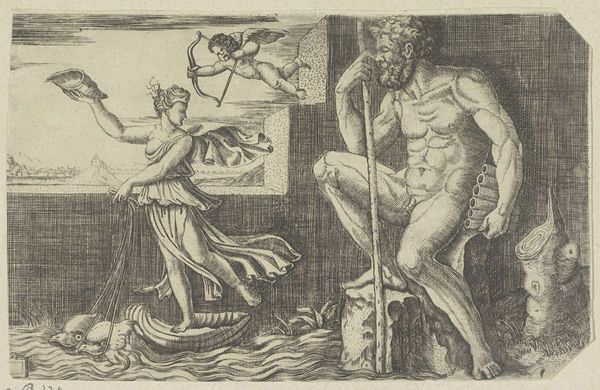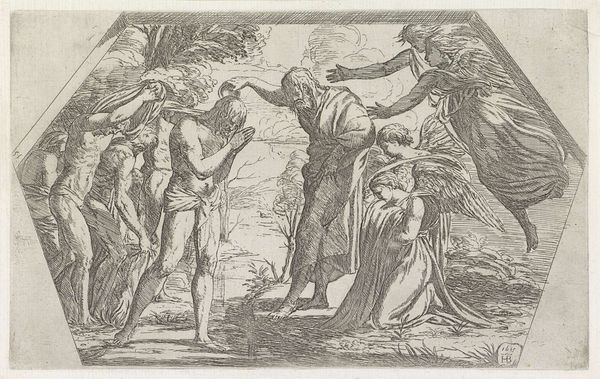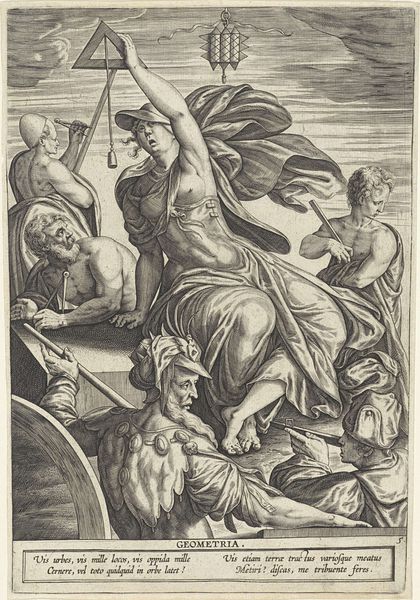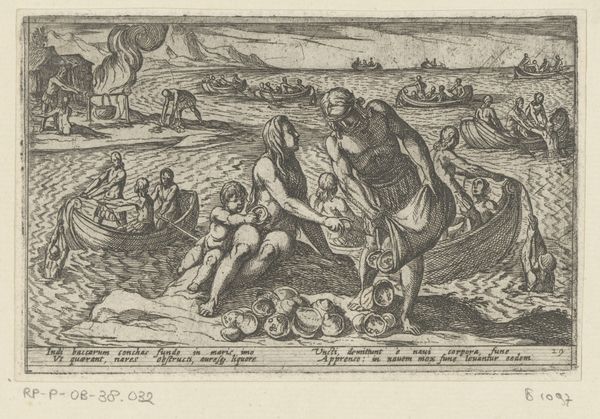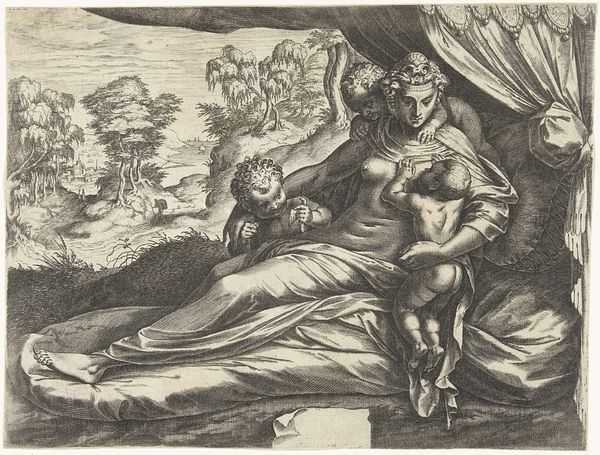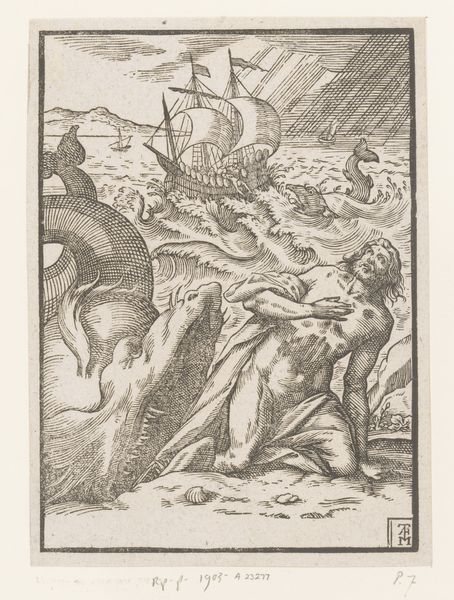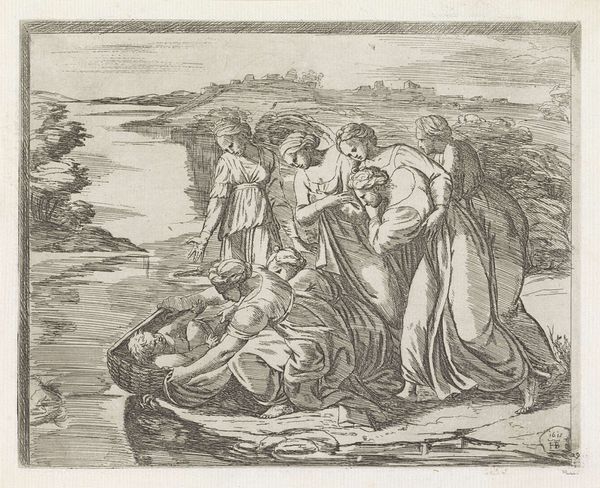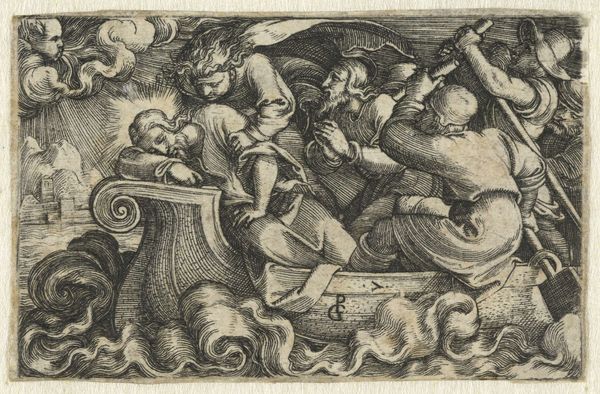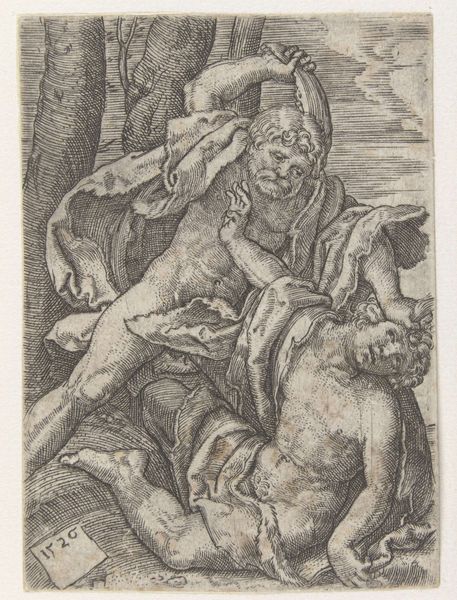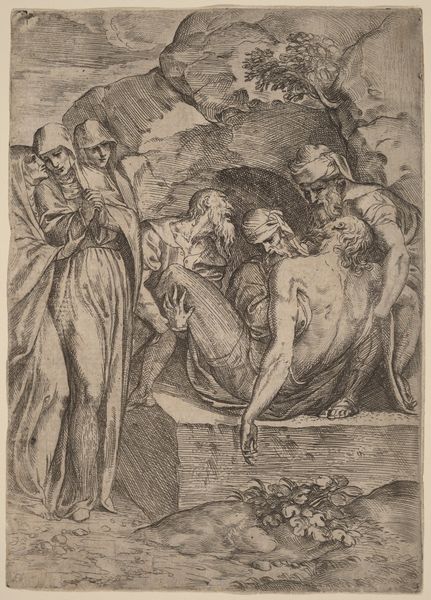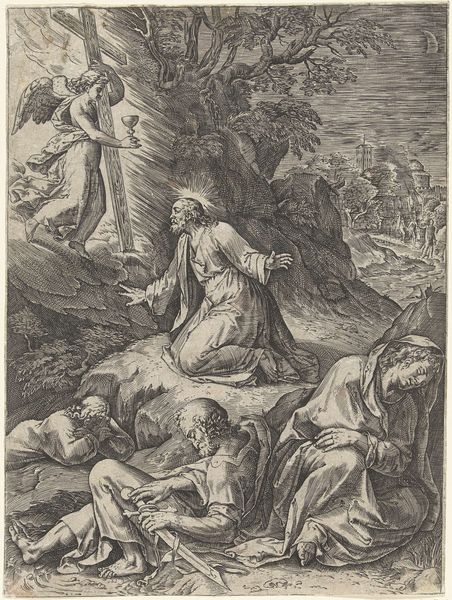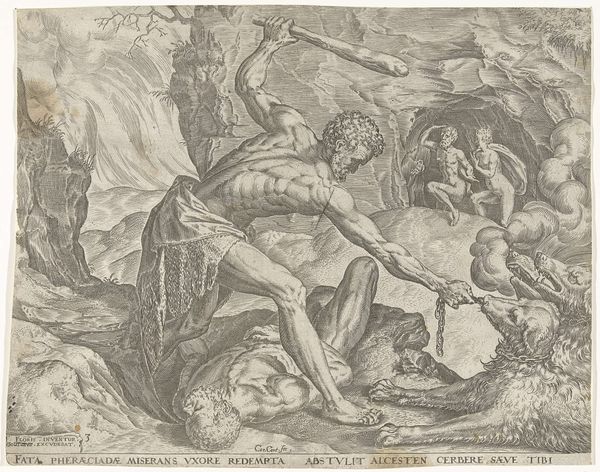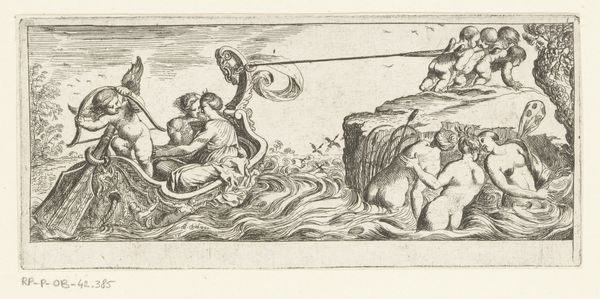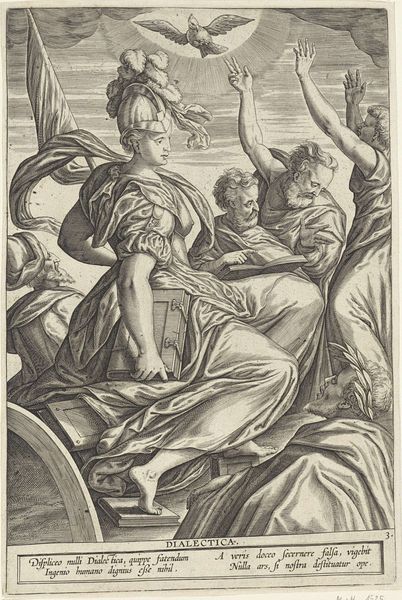
print, engraving
#
narrative-art
# print
#
landscape
#
figuration
#
history-painting
#
italian-renaissance
#
engraving
Dimensions: height 67 mm, width 90 mm
Copyright: Rijks Museum: Open Domain
This print, *Witnesses of a Shipwreck*, was made by Marco Dente, sometime in the early 16th century. He used a technique called engraving, cutting lines directly into a copper plate. Take a close look. Notice how the composition emerges from the accumulation of very fine marks. Think about the labor involved. Dente would have used a tool called a burin to plough thin lines into the metal. The density of these marks creates areas of light and shadow, defining the figures and turbulent sea. Engraving was crucial for disseminating images at this time. It allowed for the mass production of prints, making art more accessible, and enabling artists like Dente to reach a wider audience. This was a radical shift, from unique handmade artworks to reproducible images, tied to emerging capitalist markets. By emphasizing the labor and process behind this seemingly simple image, we can appreciate it not just as a picture, but as a testament to the changing landscape of art and production in the Renaissance.
Comments
No comments
Be the first to comment and join the conversation on the ultimate creative platform.
